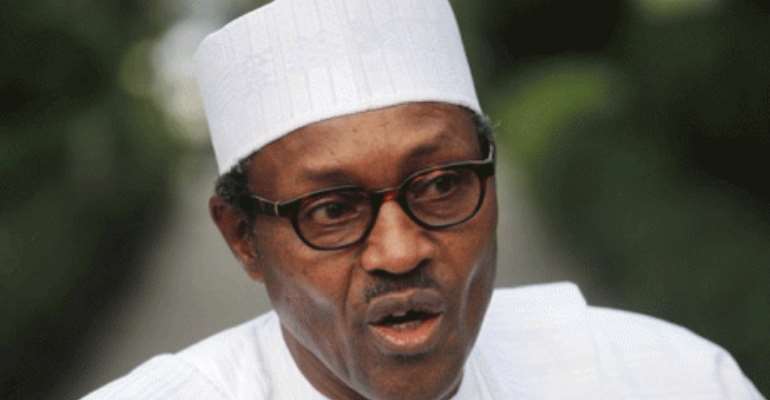BUHARINOMICS- The Case For Value Based Budgeting System!

At President-elect Muhamadu Buhari’s Presidential pre-inauguration gala night at the Conference Hall of Amso International Hotel, Wuse, Abuja on the 27th of May, 2015 I presented a paper on behalf of the Progressive Solidarity Forum- for which I was the global Spokes person on Finance and the Nigerian Economy- titled “BUHARINOMICS- REALISING THE POTENTIALS OF THE NIGERIAN ECONOMY THROUGH BETTER Budgetary Management.”
The paper covered a wide range of issues from Income Accrual to Transparent Accounting and Reporting, particularly in the Oil sector, to raising income through Accountable Tax system, as well as expanding the scope and scale of both Direct and Indirect taxes, and in particular the Value Added Tax ( VAT ). The paper also dwelt on the Expenditure side of the Reporting system, and more importantly recommended a novel, at least to Nigerians, Budgeting system known as Value Based Budgeting ( VBB ).
VALUE BASED BUDGETING, (Value for money Budgeting system)
At the APC policy dialogue held at Transcorp Hilton Hotel, Abuja on the 20th and 21st May, 2015, I had the privilege of been in the Finance and Nigerian Economy session of the Policy dialogue listening to a panel comprising of Governor-elect of Kaduna state, Malam El Rufai, Professor Pat Utomi of Lagos Business School and many other Egg heads in the area of Economics and Financial Management. At that event, in their separate presentations, Both El Rufai (21st May, 2015 and Prof Utomi (20th May, 2015) advanced the case for Zero Based Budgeting. They opined, correctly, that Nigerian Traditional Budgeting (also known as Incremental Budgeting system ) which Nigerian successive government have been using and the authorities refused to change encourages e enhances fraud, if not legitimising stealing through the Budget!
They therefore recommended Zero Based Budgeting as a replacement for the fraud-prone “Incremental Budgeting system” used in the 2015 Financial/Budget year. For them, and I agree largely with their viewpoint, ZBB will be a straight Bullet and a panacea for combating legalised stealing, even through the Budgetary system once passed by parliament. Unlike Incremental Budgeting system which most countries of the world have long abandoned and have since embraced Zero Based Budgeting, a method that can cause reduction in the incidence of fraud in the graft-prone Nigerian Budgeting system and processes, scrutinises and re-evaluates every line item of the Budget (mainly the Expenditure side) to justify its inclusion as an item by the relevant Budget holder or Control officer.
VALUE FOR MONEY BUDGETS- A NEW APPROACH TO VALUE BASED BUDGETING:
What is Value Based Budgeting? “Value Based Budgeting” is a method of Budgeting which asks Budget Holders the difficult questions in the prioritising of projects and programs because of the limited resources of nations and states. “It starts with the Executives setting goals and objectives and aligning the Budget to meet those objectives by critically analysing priority projects in the face of economic reality AND THE Economics principles of Scarcity and Choice and Opportunity Costs. The process starts from the Chief Executive of public institution (Budget holder) scrutinising every item of Expenditure in the Budget for Value for money- the test for the 3Es of Economy, Efficiency and Effectiveness of those expenditure before they are presented to Parliament for approval.
The 3Es aims to achieve different objectives in the Budget expenditure evaluation mix, namely:
Economy- Acquisition of resources (purchases) in appropriate quality and quantity at minimum cost (best prices paid for item of expenditure).
Efficiency- Maximum (best) output for any given set of inputs (or minimum inputs for any given quantity and quality of goods and services provided).
Effectiveness- The extent to which any activity or item of expenditure achieves its intended results, which could be quantitative or qualitative.
A case for the jettisoning of the current “Incremental Budgeting” system and the adoption of “Zero-Based Budgeting” system had been made by top Nigerian Accountants and Business, Economists and Business consultants but I would recommend the adoption of the more people-centred Value Based Budgeting. For me, it is not the Budgeting system that is the issue with Nigerian public Finance management. Any budget method is as good as the quality and integrity of those entrusted with task of managing it. What has been lacking sorely in the management of Nigerian Budgets has been strict implementation, poor feedback and monitoring mechanism and performance measurement and early detection and review system on a timely basis.
A TEMPLATE FOR REGULAR BUDGET PERFORMANCE MONITORING AND REVIEW:
Never under the watch of the current Finance minister, Mrs KemiAdeosun, should an item of expenditure like the annual Fuel Subsidy Budget of N350Billion shoot beyond N700Billion (100% adverse Variance), not to talk of a whooping N2Trillion plus, as it happened in 2011/12 Fiscal year, and no heads rolled.
I am happy that the new administration’s Finance Minister, Mrs Kemi Adeosun, a double Chartered Accountant with degrees in Economics and Public Finance from top UK universities has the pedigree to inject Financial Control and effective Performance management measures- areas the last Finance Minister showed some degree of weakness, especially in Budgetary control and performance review.
Anthony Ishiekwene, ACMA; CGMA
Mr Ishiekwene is a Chartered Global Management Accountant and the Chief Executive of TI Konsult, a Global firm of Financial and Management Accounting Consultancy based in Nigeria and the United Kingdom.
He could be reached at:
www.tonyishiekwene.com
Email: [email protected]
